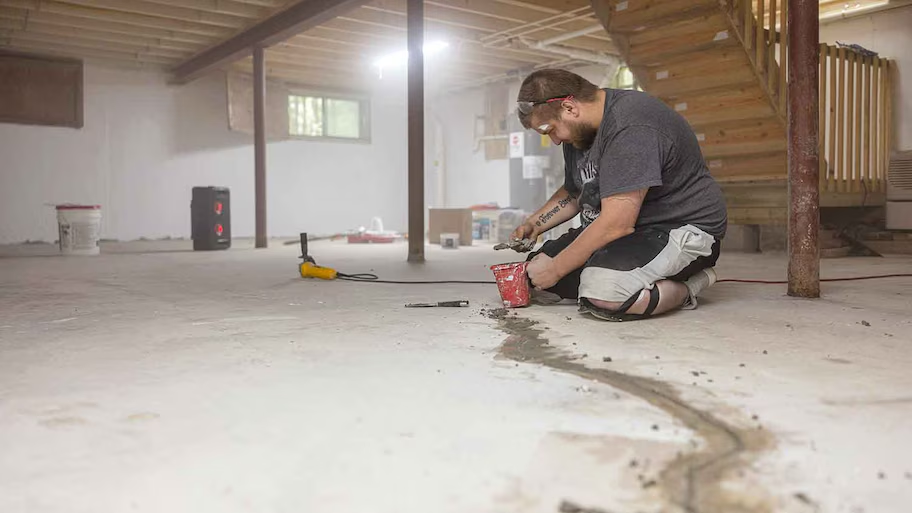For most homeowners, their house is not just a place to live—it’s their most significant investment. As with any investment, the goal is to maintain and increase its value over time. However, when structural issues arise, particularly those affecting the foundation, the concern shifts from routine maintenance to serious financial implications. The question then becomes: does fixing the foundation add value, or is it just a necessary repair that doesn’t truly increase your return?
Let’s explore the value added by foundation repair, both in terms of resale potential and long-term cost savings, while also considering when it’s actually worth investing in.
The Impact Of Foundation Problems
A home’s foundation serves as the literal and metaphorical bedrock of its stability. When problems with the foundation occur—such as cracks, uneven flooring, or doors that stick—it sends red flags to buyers, home inspectors, and real estate agents alike. These signs don’t just suggest a structural issue; they cast doubt on the overall condition of the home.
Even if the rest of the property is pristine, foundation problems can severely reduce a home’s market value. Buyers are often wary of making offers on properties that require major repairs. In some cases, a damaged foundation can slash a home’s value by 10% to 20%, or even more, depending on the severity and location. The stigma surrounding structural issues is hard to overcome, and many buyers will walk away unless repairs have been made or are accounted for in a lower asking price.
Foundation Repair As A Strategic Investment
Given the stakes, investing in foundation repair isn’t just about making the home livable—it can be a strategic move to protect and potentially increase its resale value. However, to understand whether the investment truly pays off, one must consider the broader context.
When homeowners find out if foundation repair is worth it for increasing home value, they’re often surprised at how much potential lies in resolving this major issue. Professionally repaired foundations restore buyer confidence, allowing a property to compete more fairly in the real estate market. A structurally sound home can be staged and marketed at full price, while a home with lingering foundation concerns will be treated as a distressed property.
In competitive housing markets, the return on foundation repair can be significant. Not only does it open the door for a higher listing price, but it also shortens the time the home spends on the market. Buyers appreciate transparency, and providing a warranty or proof of repair can strengthen your position in negotiations. In this sense, the investment serves a dual purpose: safeguarding the structural integrity of your property and enhancing its market desirability.
The Financial Equation
While the value added can be considerable, foundation repair isn’t cheap. Repairs may cost a few thousand dollars to well over $20,000, depending on the technique and the degree of damage. It’s essential to balance the cost of repair with the expected value gain.
For example, if your home is worth $300,000 and a foundation issue is reducing its value by 15%, you’re losing $45,000 on the table. If a $15,000 repair can fully resolve the issue and allow you to sell closer to market value, the return is clear.
However, if the damage is minor or your market isn’t competitive, the added value might not be as direct. In these cases, it’s less about increasing value and more about preventing loss. Without repair, the home may fail inspection, require seller concessions, or struggle to attract offers.
Not All Repairs Are Equal
The type and quality of foundation repair matter just as much as the decision to undertake it. DIY fixes or superficial patches won’t do much to reassure buyers. Instead, professional repairs—particularly those backed by warranties and documentation—send a strong message that the issue has been resolved with long-term integrity in mind.
Moreover, in some cases, foundation repair can be bundled with other improvements to create even more value. Re-leveling floors, correcting drainage issues, or improving basement waterproofing can transform a previously flawed property into one that’s safe, functional, and appealing.
When To Act
Timing also plays a role in how much value you can get from foundation repairs. Early foundation repair helps avoid future damage and more expensive repairs if you intend to remain in your house for an extended period of time. If you’re planning to sell, addressing these issues before listing is often essential to maintaining leverage in pricing and negotiations.
While you may not always recoup 100% of your investment dollar-for-dollar, the intangible benefits—peace of mind, faster sales, and fewer headaches—often make the decision worthwhile.
Conclusion
Foundation issues are serious, but so is the value they can add when properly addressed. Whether you’re staying put or preparing to sell, the benefits of a stable, professionally repaired foundation go beyond basic safety—they can translate into real financial gain. If you’re on the fence, take the time to find out if foundation repair is worth it for increasing home value based on your specific property and market conditions. It’s not just a repair—it’s a safeguard for your investment, your future resale, and your home’s structural legacy.


